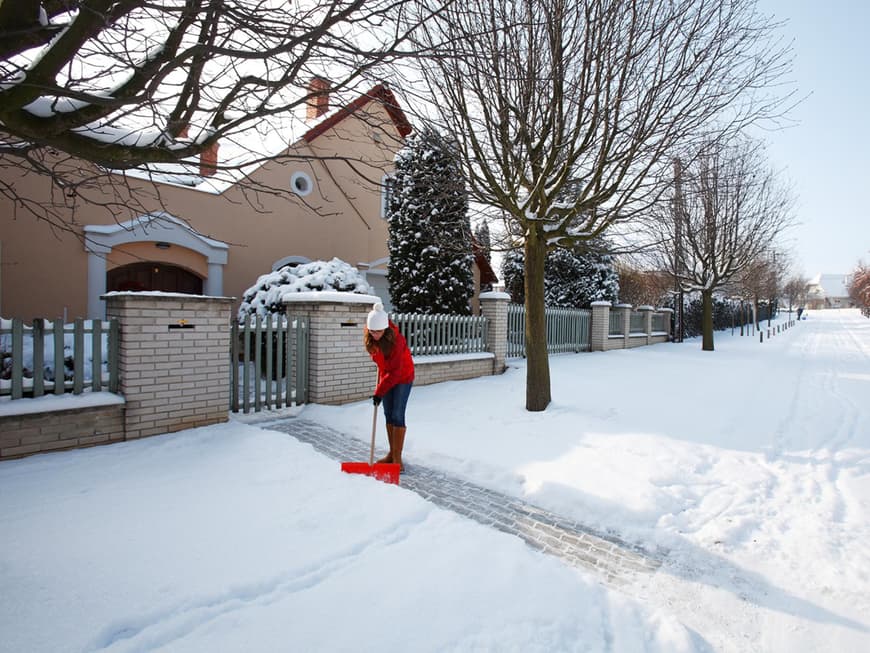
Duty to grit in winter: From the municipality to the owner to the tenant
Municipalities are actually obliged to clear ice and snow from public footpaths, but they usually transfer these duties to the owners of the adjacent properties. For their part, owners and landlords can pass these duties on to tenants. However, this is only possible via a rental agreement or house rules: informal notification - such as a notice in the hallway - is not sufficient. If the duty to clear and grit has been properly transferred to the tenant, the tenant is then also liable for any damage - for example, in the event of a fall on slippery ground.
Duty to clear in winter: One meter is enough
Anyone who has the duty to clear snow in winter must ensure a non-slip passageway at least one meter wide. This means that the entire footpath does not necessarily have to be cleared and gritted; it is sufficient if two people can pass each other safely.
When does the duty to grit apply in winter?
Whether owner or tenant: During general traffic hours (usually between 7 a.m. and 8 p.m., at weekends from 9 a.m.), the sidewalks must be safe to use. If the snowfall continues after 8 p.m., it must be cleared by 7 a.m. the following morning.Compensation and damages after falls
If the duty to grit is neglected in winter and a fall occurs, the injured party is entitled to compensation for damages and pain and suffering, and may even be sued for negligent personal injury.Granulate or salt for gritting in winter?
Granulate and salt are the most common means of fulfilling the gritting obligation in winter. However, many local authorities severely restrict the private use of salt for environmental reasons or ban it completely. It is best to obtain information from the city or municipality about the relevant regulations.






